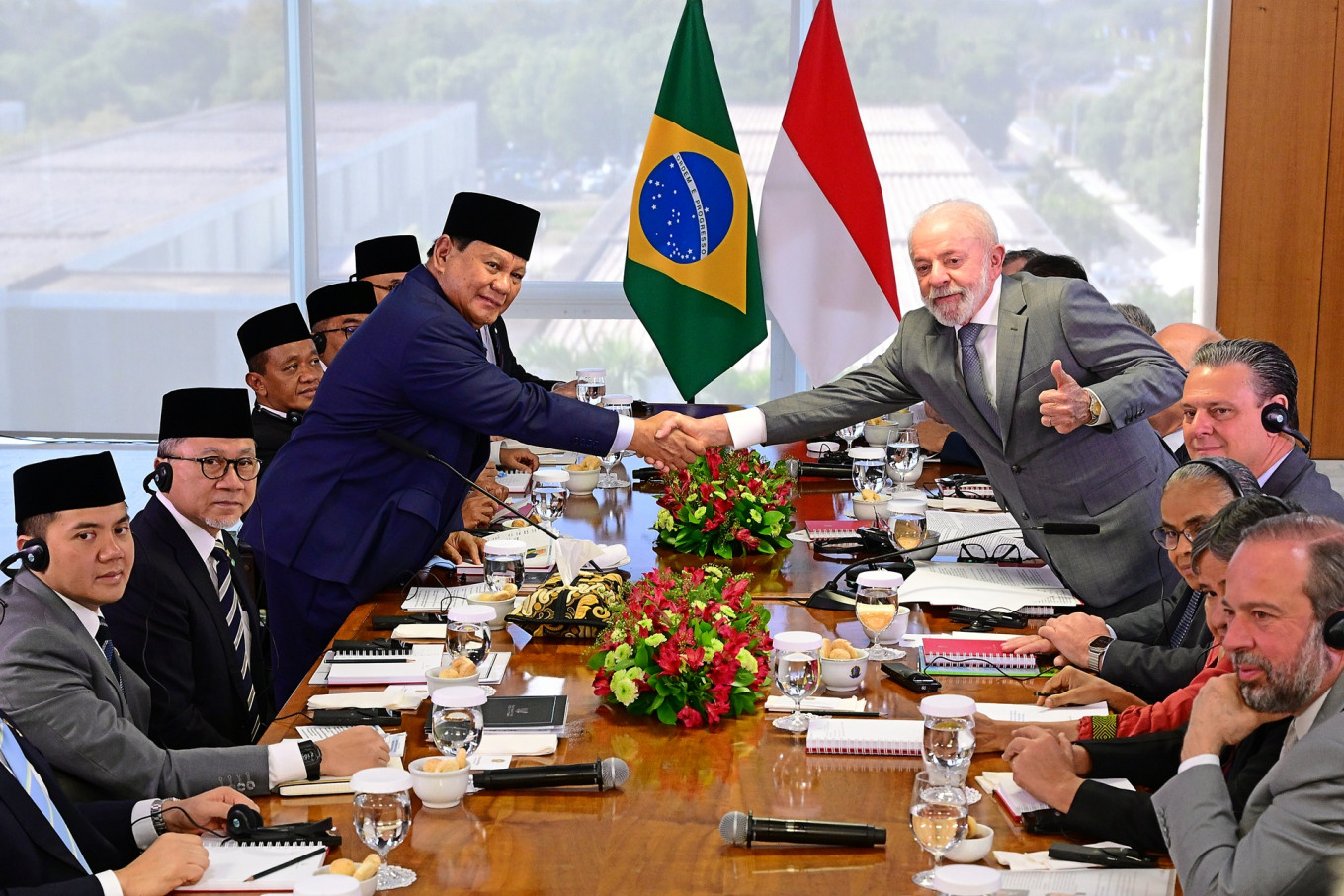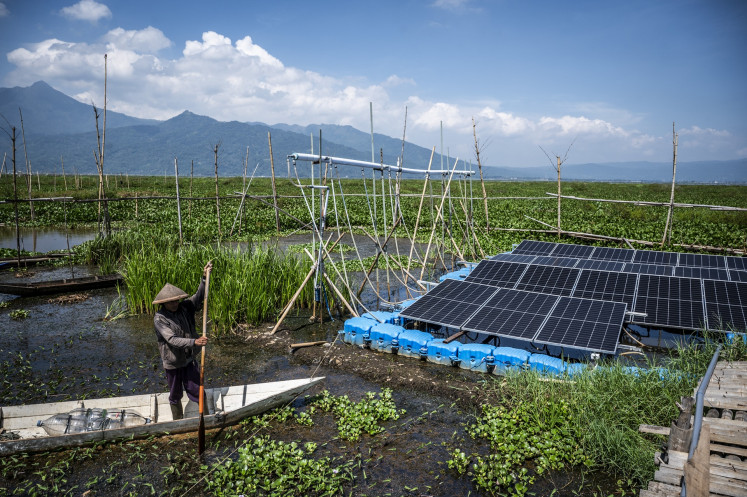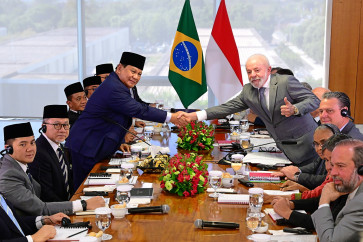Popular Reads
Top Results
Can't find what you're looking for?
View all search resultsPopular Reads
Top Results
Can't find what you're looking for?
View all search resultsRI to learn from Brazil’s ethanol fuel success, says Bahlil
Brazil is the world leader in the use of sugarcane-based ethanol as car fuel, with its national mandatory blend reaching as high as 30 percent.
Change text size
Gift Premium Articles
to Anyone
 President Prabowo Subianto (left) shakes hands with his Brazilian counterpart Luiz Inácio Lula da Silva during the bilateral meeting between both countries' delegations on July 9 at the Planalto Presidential Palace in Brasilia, Brazil. Among members of the Indonesian delegation are (from left to right) Cabinet Secretary Teddy Indra Wijaya, Coordinating Food Minister Zulkifli Hasan and Energy and Mineral Resources Minister Bahlil Lahadalia. (Courtesy of Presidential Secretariat/Muclis Jr)
President Prabowo Subianto (left) shakes hands with his Brazilian counterpart Luiz Inácio Lula da Silva during the bilateral meeting between both countries' delegations on July 9 at the Planalto Presidential Palace in Brasilia, Brazil. Among members of the Indonesian delegation are (from left to right) Cabinet Secretary Teddy Indra Wijaya, Coordinating Food Minister Zulkifli Hasan and Energy and Mineral Resources Minister Bahlil Lahadalia. (Courtesy of Presidential Secretariat/Muclis Jr)
E
nergy and Mineral Resources Minister Bahlil Lahadalia stated that Indonesia will work together with Brazil in the renewable energy sector, particularly on the development of bioethanol fuel.
The plan was discussed during Brazilian President Luiz Inácio Lula da Silva’s visit to Jakarta on Thursday. Bahlil, who attended the meeting, said Indonesia would observe and study how the scheme has been implemented in the South American powerhouse.
“In the energy sector, especially renewables, we’ll collaborate. Brazil is one of the countries that has successfully implemented mandatory bioethanol. They already have E30 and even E100 in several states,” Bahlil said, as quoted by Kumparan, referring to the percentage of bioethanol blended into gasoline.
Brazil is the world leader in the use of sugarcane-based ethanol as car fuel. Its national mandatory blend has reached as high as 30 percent since August, made possible by the widespread use of flexible-fuel vehicles (FFVs) capable of running on higher ethanol content.
The United Nations Climate Change Technology Executive Committee noted in a 2023 publication that FFVs accounted for over 70 percent of Brazil’s light-duty vehicle fleet. The country has promoted FFV adoption since the technology was introduced in 2003.
Indonesia, meanwhile, still primarily relies on standard internal combustion engine (ICE) vehicles, although some automakers such as Toyota and Suzuki have begun experimenting this year through trial runs and showcases at auto exhibitions.
Nevertheless, the government is seeking to promote biofuel adoption, with a mandatory E10 blend potentially taking effect as soon as next year, although related ministries have yet to agree on the exact timeline.

















